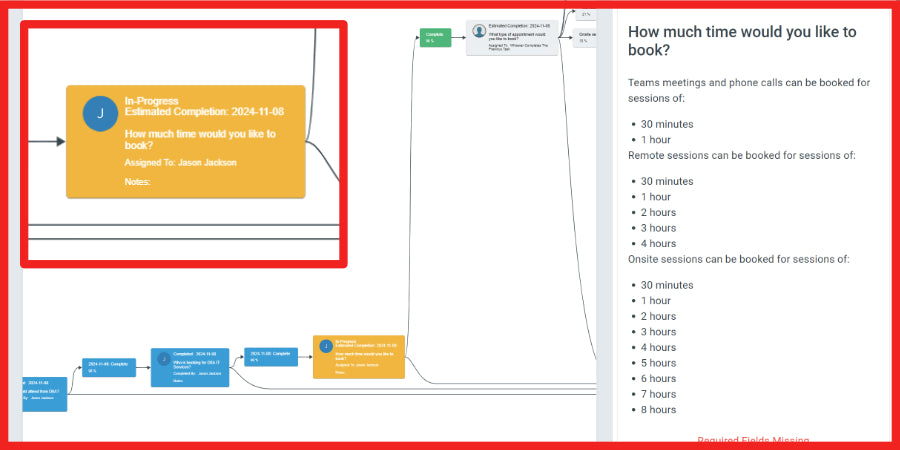Why choose D8A?
- Years of experience in using Business Process Management systems
- We will assess your current workflows and develop custom processes that work for you
- Available to help develop new or amend existing processes in the future
What our customers say
A brief history of BPM
BPM has its roots in the industrial revolution, where the need for efficiency and standardisation in manufacturing processes became paramount. However, the modern concept of BPM emerged in the late 20th century, driven by advancements in technology and a growing emphasis on improving organisational performance.
Today, BPM is a critical component of modern business management, encompassing a wide range of techniques and technologies to improve organisational performance and achieve strategic objectives. The need for methodical structure in business is nothing new, but the systems we use today make it easier to achieve more - for less effort than ever before.
Key Features of BPM Systems
Most BPM systems offer a range of features that empower organisations to effectively manage their processes. These typically include:
- Process modelling: Known more formally as Business Process Model and Notation (BPMN). This feature allows you to visually represent your business processes using flowcharts or diagrams. This aids in identifying bottlenecks, redundancies, and areas for improvement.
- Workflow automation: BPM systems can automate repetitive tasks, freeing up employees to concentrate on more strategic work. This can also reduce errors and improve overall productivity.
- Business rules management: This feature enables your business to define and enforce rules and policies throughout their processes. This helps ensure compliance with regulations and maintain consistency.
- Performance monitoring: BPM systems provide real-time visibility into process performance, allowing your business to track key metrics and pinpoint areas for improvement.
- Integration: BPM systems can integrate with other enterprise systems, such as ERP and CRM, to provide a comprehensive view of business operations.
- Collaboration: BPM systems often include collaboration features that enable teams to work together more effectively on process improvement initiatives.
Benefits of implementing a BPM system
Implementing a BPM system can offer numerous advantages for businesses, including:
- Increased efficiency: By streamlining processes and automating tasks, your business can improve efficiency by identifying and eliminating bottlenecks.
- Improved customer satisfaction: Helps your business to deliver products and services faster and more accurately, leading to improved customer satisfaction.
- Enhanced decision making: BPM systems provide real-time data and analytics that can assist your business in making better informed decisions.
- Greater agility: Helps your business adapt more quickly to changing market conditions.
- Improved compliance: Helps your business to be compliant with regulations and industry standards.
- Enhanced communication: BPM systems are built on a centralised platform that allows for seamless collaboration between colleagues.
- Reduced costs: By optimising processes and eliminating waste, your business can significantly reduce costs.
Get started with BPM
If you're interested in learning more about how a BPM system can benefit your business, please contact us today. We'll be happy to discuss your specific needs and recommend a solution that's right for you and your business.







